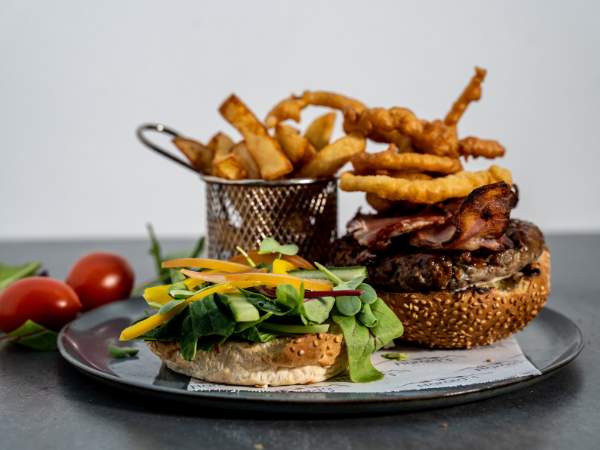News
Tuck of the bushveld
Wednesday, August 25th, 2010In the shimmering haze of a midday bonfire, a group of children grind their boots into rocky ground. Wearing light, white cotton, they seem to be an ethereal mirage to a heat-addled brain.
Fortunately, there’s nothing heat-addled about my brain. In fact, I’m enjoying a refreshing glass of Karri, which is Solms-Delta’s take on mead. And the children are performing a ‘riel dance’ to inaugurate Solms-Delta’s Dik-Delta Fynbos Culinary Gardens.
Mark Solms (part owner of the estate) is playing host and is as jubilant and convivial as ever.
‘Riel dancing goes back centuries,’ he says. ‘The dance developed in pre-colonial times between Khoe people and farm people.’
It’s not just synchronised jiving though, there are many forms of this groovy ritual – most versions involve ‘love dramas’, play fighting and symbolism.
‘This garden is all Renata’s doing,’ says Mark, gesturing at the fynbos labyrinth. ‘Renata Coetzee is a godsend, a real kultuurskat (a cultural gem).’
Indeed she is. Her eyes sparkle beneath a broad-brimmed hat as she listens to Mark. Renata is a food scientist who has spent the last 50 years researching and writing about South Africa’s food heritage.
‘We designed our restaurant, Fyndraai, around these incredible plants Renata told us about,’ Mark continues. ‘At the time I didn’t realise these plants were available.’
The rest, as they say, is history. Now the clever people at Solms-Delta have a veritable crop of plant history – and they can stock their restaurant, too.
Cooking with fynbos isn’t anything new – the ubiquitous rooibos dessert or a fynbos-infused sauce has popped up on many a menu – but here at the 320-year-old Franschhoek estate, traditional plants that I’ve never even heard of, let alone tasted, are being unearthed. The list of plants already numbers at over 60 different types.
The array of harvested bulbs and shrubs are colourful and alien. Renata picks up a bundle of wild brown sage and offers it to me to sniff.
‘The Khoe used to wrap fish in this herb and then bury the parcel in the sand by a fire where it would bake in the hot ground.’
These primordial plants are not the only indigenous things in this garden. Off in the distance, chewing the cud, are Sanga cattle and, hidden from view, fat-tailed sheep, which are, as Mark puts it, ‘rather more violent and unpredictable than your average woolly sheep’.
Mark is also behind a musical heritage programme at the estate called Music van de Caab.
Later at the restaurant, it’s clear that he’s a fan of the music. His toes move up and down in his leather moccasins while we listen to the group singing Jaloers Bokkie, Daar Lê die Ding, and other classic Kaapse treffers.
We’re trying the heritage menu – a fusion of three culinary traditions of the Cape: the veldkos of the indigenous Khoe and San, Cape Malay cuisine and boerekos (dishes developed by European settlers).
Fyndraai’s chef, Shaun Schoeman, grew up with South African cuisine, his mother being quite the expert on endemic dishes. When it came time for him to pursue his career as a chef, as most kids do, he went in the exact opposite direction and learnt to cook classical French and haute cuisine.
After stints at Aubergine, Haute Cabrière, and Monneaux, he’s done an about turn, and is now, literally, embracing his indigenous roots.
The starter is a trio of waterblommetjie soup, snoek sambal, and a Cape fruit cup. The snoek sambal is delicious – rich and fragrant.
‘Cape snoek,’ Renata explains, ‘is said to have been the favourite fish of the slaves. Often smoked, this traditional dish was served with syrup made from fermented grapes.’
Just before the main course (another trio) of veld vegetables and goat’s cheese bake, masala chicken curry, and venison pie, Mark stands up to announce to the room that he’s just been paged by Groote Schuur hospital and has to leave.
Good grief. The man is a heritage champion, a music lover, an indigenous plant grower and a neuroscientist to boot.
Mark Solms seems to be just what he celebrates in others – a real kultuurskat.
By Malu Lambert








